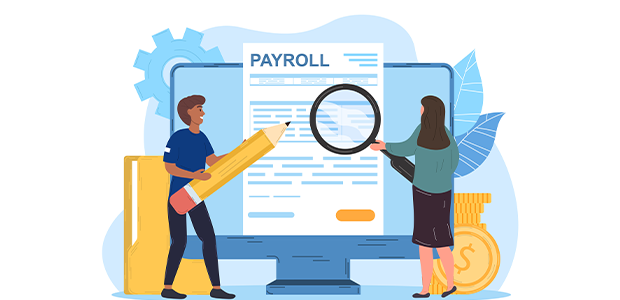
5 Things New Founders Need to Know About Payroll
As we celebrate National Payroll Week, it’s important to recognise the vital role that payroll professionals and processes play in ensuring a business runs smoothly. For startup founders, navigating the complexities of payroll can be especially challenging amid the pressures of managing daily operations, growing the business, recruiting talent, and ensuring profitability.
Small business owners and founders are responsible for making sure payday goes off without a hitch. Payroll inaccuracies can significantly undermine employee trust and morale. Research from the Society for Human Resource Management (SHRM) reveals that over a third of employees have had to chase their employers for their pay at least once. In today’s competitive job market, where talent is scarce, losing good employees due to payroll errors is a risk no business can afford.
Here are five crucial insights from Pauline Green, Head of Product Compliance & Programs at Intuit QuickBooks UK, that small business owners need to know about setting up and managing payroll. These insights cover everything from selecting payroll software to deciding whether to handle payroll in-house or outsource it, along with tips on staying compliant with legal obligations like workplace pensions.
Salary Considerations
One of the first decisions founders face is whether to pay themselves a regular salary or not. This choice affects personal finances, tax obligations, and the company’s cash flow. If they choose to take a salary, they must decide on the appropriate amount and plan for this based on business revenue. Alternatively, founders might opt not to receive a salary, choosing instead to take quarterly dividends or reinvest funds back into the business. This is particularly common during the early stages of starting a business. Founders need to carefully consider the long-term impact of salary decisions on the business and seek financial advice from an accountant who can support them in exploring options.
HMRC Registration and Compliance
Payroll compliance can be daunting with employers needing to navigate government requirements and internal policies. Registering with HMRC for PAYE (Pay As You Earn) is a legal requirement for all employers, ensuring that Income Tax and National Insurance contributions are accurately calculated and paid. This requirement applies if the founder is paying themselves a salary or if any employee earns more than £123 per week or the monthly equivalent. Founders must also be aware of other compliance requirements, such as pension contributions and employment checks, to avoid penalties and fulfil their legal obligations. Founders should regularly review HMRC guidelines and consult with a compliance expert to stay updated on legal obligations, ensuring that the business remains compliant and avoids costly penalties.
Payroll Software Selection
When paying employees, founders must use Payroll software, as it needs to be set up to report to HMRC on or before the pay day. Payroll software will also help calculate gross and net pay, variable deductions, such as Income Tax and fixed deductions like loan repayments. Choosing the right payroll software is critical. It should streamline payroll admin, reduce errors, and help ensure compliance. For example, QuickBooks Payroll is HMRC-recognised, easy to set up, and integrates seamlessly with accounting systems. Accounting software can also automate tasks like submitting Construction Industry Scheme (CIS) taxes to HMRC and calculating contractor or subcontractor deductions. Also if employees are subject to CIS deductions, they can submit these via the payroll software to HMRC to reduce the Income Tax liability. Founders should prioritise factors such as ease of use and integration with other financial management tools.
Do you need an Accountant?
While some small businesses may manage payroll internally, particularly to start with, payroll complexity increases as the business grows. At this point, working with an accountant can be beneficial. An accountant can manage payroll, ensure compliance, and free up the founder to focus on other areas of the business. This is also particularly important in more complicated industries, such as construction. Founders need to evaluate the complexity of their payroll and industry-specific requirements to determine whether enlisting the support of their accountant would provide value by saving time and reducing the risk of errors.
Beware of scams
It’s tempting to shy away from taking on PAYE staff, or paying oneself via PAYE, and to use third-party contractors or umbrella companies instead. However, IR35 legislation limits how a business engages with contractors and gives them some legal rights. Umbrella companies exist to manage payroll processes and operate PAYE for contractors, which could include founders. They receive funds from the business and make the necessary deductions following HMRC rules. But beware, some bad actors are offering services such as reducing income tax liability. Remember, if it seems too good to be true, it probably is. Always seek advice from a qualified accountant to avoid potential pitfalls.
Starting a new business comes with many responsibilities, and managing payroll is one of the most critical. While this task may seem daunting at first, with the right tools and support, it can be smoothly integrated into the business operations. By understanding and implementing these payroll fundamentals, startup founders can avoid common mistakes, keep employees satisfied, and ensure their business remains compliant and financially fit.

